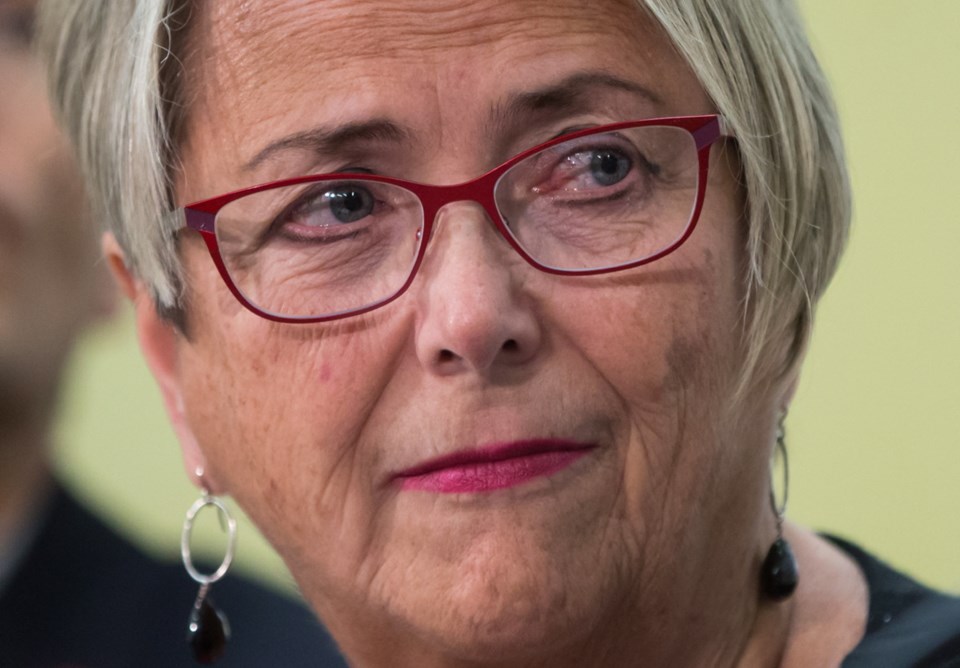Post-secondary students could soon be able to access a virtual mental-health counselling service, which is being developed by the provincial government.
The round-the-clock mental-health and substance-use counselling and referral service will allow people in their teens and early 20s to get help by phone, online chat, text and email.
The B.C. government has posted a notice of a planned contract procurement to B.C. Bid, where contracts for government-related goods and services are advertised. The province did not give a date for when the service will be rolled out.
In March, the provincial government officially opened Foundry Victoria at 818 Douglas St., a “one-stop shop” where youth ages 12 to 24 can get help for physical, mental-health and addictions issues. It was the sixth such centre to open across B.C., with five more in development.
While there are 24-7 crisis lines, such as the one offered by the Vancouver Island Crisis Society, the Ministry of Advanced Education, Skills and Training said there is no provincewide resource available to post-secondary students. Some resources offered are not available after hours.
The service will supplement, not replace, services offered through the provincial crisis-line network, the ministry said.
“It’s critical to provide young people with access to the supports they need, where and when they need them,” said Minister of Mental Health and Addictions Judy Darcy. She said using virtual technology would enable young people from all parts of the province to ask for help and get it help fast.
Post-secondary students ages 15 to 24, are more likely to report mental illness and substance-use than other age groups.
According to a 2016 National College Health Association survey of Canadian post-secondary students, 44.4 per cent of students surveyed reported that at some point in the previous 12 months, they felt “so depressed it was difficult to function”; 13 per cent had seriously considered suicide; 2.1 per cent had attempted suicide and 18.4 per cent reported being “diagnosed or treated by a professional” for anxiety.
In November, 21-year-old Spencer Stone Shutes died when he fell from the top floor of the library at Nanaimo’s Vancouver Island University. Shortly after his death, his brother, Brandon Stone, urged anyone who is struggling to ask for help.
Tina McComb, VIU’s associate vice-president of student affairs, couldn’t comment on Shutes’ death, but said she welcomes any additional resources that provide more options for students looking for help.
McComb said it can be overwhelming for students who are living away from home for the first time, trying to juggle a busy course schedule and personal relationships.
Students can access support through the counselling-services office, and community leaders in student residences are also trained in mental-health first aid, McComb said, but some students might feel more comfortable accessing support through text message or online chat.
“I think the addition of a 24-7 service like this may help students to obtain some assistance in a format that they feel comfortable with,” McComb said.
McComb said supporting student mental health requires an entire community, including the government, faculty, student leaders and community agencies.
In a statement, Melanie Mark, minister of Advanced Education, Skills and Training, acknowledged that students have been calling for more services: “Whether mild or severe, mental-health concerns are very real among post-secondary students who have been calling for action to this important issue on- and off-campus.”
Noah Berson, chair of the Alliance of B.C. Students, said in a statement that the government is responding to pressure from students who have called for action on improved mental-health services.
“No one schedules a time when they need support, so it’s good that a service will be available outside of regular hours for students, regardless of where they’re studying in the province,” Berson said.
Aran Armutlu, chair of the B.C. Federation of Students, said post-secondary students across the province need expanded mental-health services.
“Having more options for counselling and other services available, and having 24-7 access to these services, is a welcome addition to the changes this government is making for students,” Armutlu said in a statement.



